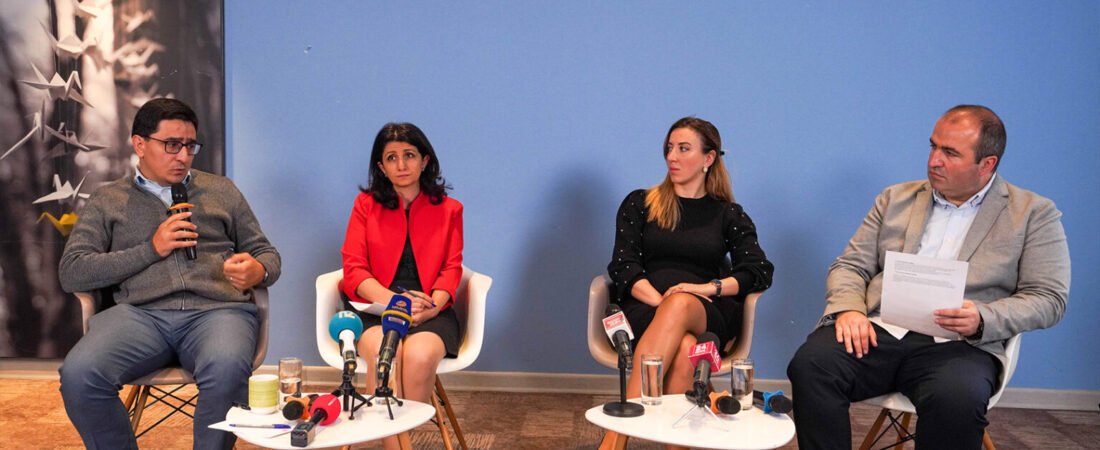“There is no independent international organization that, through search and investigative work, can locate missing prisoners, verify whether they are alive, and provide us with information about their condition,” said Siranush Sahakyan, human rights defender and president of the International Comparative Law Center, during a discussion organized by CivilNet on October 1, titled “The Issue of Prisoners in Baku: Human Rights and Politics.”
The discussion focused on the information available to the Armenian side regarding the prisoners, possible mechanisms to counter the sham trials taking place in Baku, the ban on access for independent international organizations, and the withdrawal of applications from international judicial bodies.
Highlighting the issue of the prisoners, Sahakyan emphasized that while the official legal number of Armenians held in Azerbaijan is 23, fact-finding work by human rights advocates indicates that at least 80 individuals have been subjected to enforced disappearance.
The activities of the International Committee of the Red Cross (ICRC) in Baku were suspended on September 3. What alternative mechanisms exist for the protection of prisoners’ rights?
Among other measures, speakers mentioned delegating the protection of prisoners’ rights to the ambassadors of Council of Europe member states.
According to Sahakyan, a well-known precedent for this under consular law was the United States’ delegation of the protection of its citizens to Switzerland after breaking diplomatic ties with Iran during the Islamic Revolution in 1979, when 52 American diplomats were taken hostage.
Sahakyan also pointed to the OSCE’s Moscow Mechanism: “It allows for the creation of a mission tasked with understanding and documenting the human rights situation and reporting back to the OSCE through on-site visits.”
She added: “OSCE member states have agreed to dissolve the Minsk Group, which had also maintained a human rights agenda. For years, the issue of refugees’ return was part of its mandate. I believe that alongside its closure, there should have been consideration of launching a mechanism focused on human rights issues.”
Speakers agreed that for any of these mechanisms to be effectively implemented, state consent and engagement are essential — something currently absent, given the ongoing peace process.
Hasmik Hovhannisyan | CivilNet

